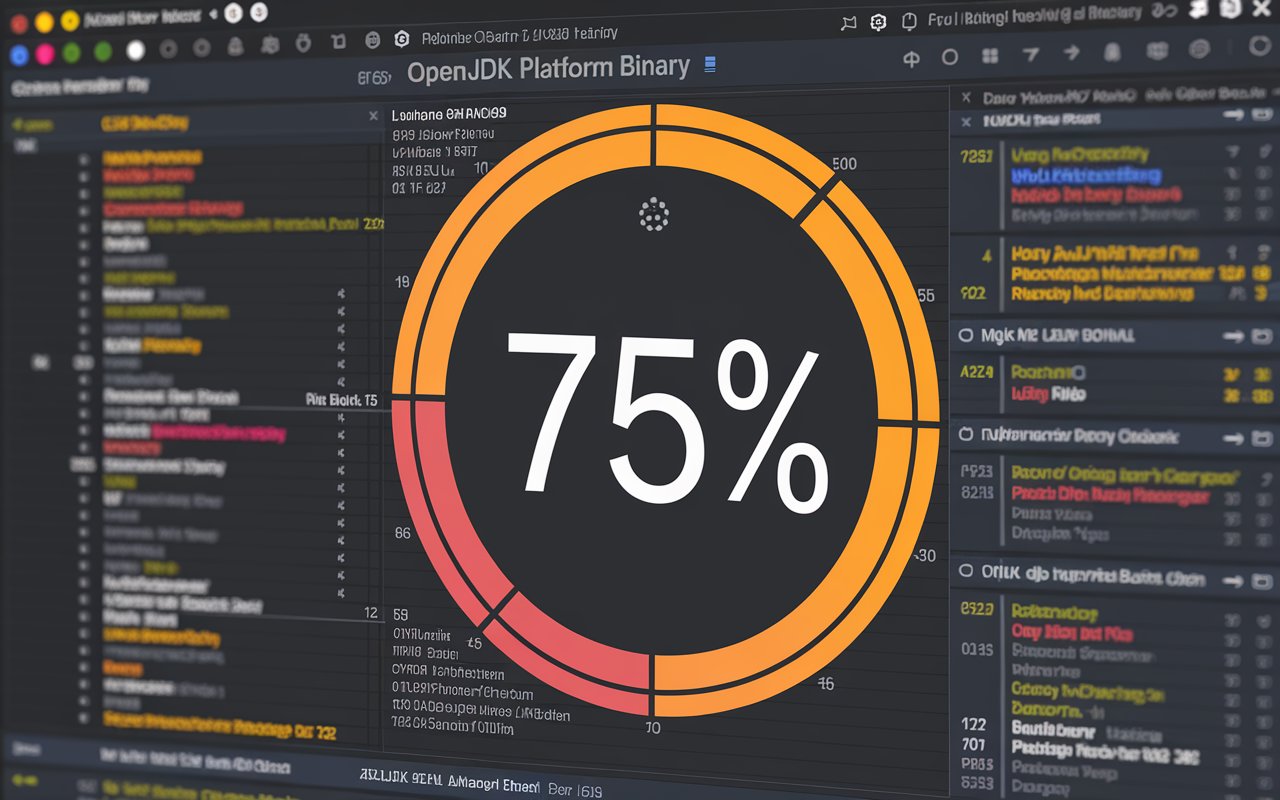
High CPU usage by OpenJDK Platform Binary can significantly impact a system’s performance, especially when running resource-intensive Java applications.
As Java powers many enterprise applications and services, it’s crucial to understand why this process sometimes consumes excessive CPU resources. This guide will explore the typical causes behind high CPU usage, how to identify the root issues, and provide practical steps for optimizing your Java application’s performance.
With insights on JVM settings, code optimization, and diagnostic tools, you’ll be equipped to manage CPU demands effectively. Let’s dive into why OpenJDK might be overworking and how to address it.
What is OpenJDK Platform Binary?
OpenJDK Platform Binary is the core executable component of the OpenJDK (Open Java Development Kit), an open-source implementation of the Java Platform.
It enables Java applications to run by providing essential runtime libraries and tools. Many applications and systems rely on it to execute Java-based code on various platforms.
Why does OpenJDK Platform Binary consume 100 percent of my CPU ?
OpenJDK Platform Binary can consume 100% of your CPU due to resource-intensive tasks, such as complex calculations, large data processing, or inefficient code with memory leaks or infinite loops.
High CPU usage may also result from frequent garbage collection if the JVM settings are not optimized. Additionally, certain applications or workloads may place sustained demands on the Java runtime, causing the spike.
How can I check if OpenJDK Platform Binary is using a high CPU?
To check if OpenJDK Platform Binary is using high CPU, open Task Manager on Windows, Activity Monitor on Mac, or run top/htop on Linux, and look for “OpenJDK Platform Binary” in the list of active processes. Monitor the CPU usage percentage next to it to see if it’s abnormally high.
What are the common causes of high CPU usage in Java applications?
Common causes of high CPU usage in Java applications include inefficient code, such as infinite loops, excessive I/O operations, and frequent garbage collection due to improper memory management.
Additionally, unoptimized JVM settings and large data processing tasks can also contribute to high CPU consumption.
How to fix OpenJDK platform binary high CPU?
To fix high CPU usage by OpenJDK Platform Binary, start by optimizing your Java code to reduce intensive loops and I/O operations.
Adjust JVM settings like garbage collection (e.g., -XX:+UseG1GC) and memory limits (-Xmx, -Xms) to better manage resources.
Regular profiling with tools like VisualVM or Java Mission Control can also help identify and resolve performance bottlenecks.
What are some Java coding practices to avoid high CPU usage?
To avoid high CPU usage in Java, write efficient code by minimizing nested loops and optimizing algorithms for better performance.
Reduce logging in production environments and manage memory usage carefully to prevent excessive garbage collection. Regularly profile your application to catch and resolve any CPU-intensive processes early.
How can I optimize JVM settings to reduce CPU usage?
Optimize JVM settings by adjusting memory allocation parameters (-Xmx for max heap, -Xms for initial heap) and choosing an efficient garbage collector, like G1 (-XX:+UseG1GC) for balanced performance. Tuning these settings helps manage CPU load and improves overall application efficiency.
Are there specific OpenJDK versions that handle CPU usage better?
Yes, some OpenJDK versions come with performance improvements and better CPU management, particularly in garbage collection and memory handling.
Newer versions (like OpenJDK 11, 17, and beyond) often have optimizations for CPU efficiency, such as enhancements in the G1 and Z Garbage Collectors and reduced memory footprint.
It’s recommended to keep OpenJDK updated, as each release may include fixes and optimizations that improve CPU performance under certain workloads.
When should I consider upgrading hardware to address high CPU usage issues?
Consider upgrading hardware when software optimizations fail to resolve high CPU usage, especially if your application consistently requires more processing power than your current system can provide.
If you notice persistent performance issues during peak loads, investing in a faster CPU or additional cores may be necessary to meet application demands.
What are some long-term strategies to minimize CPU usage in Java applications?
To minimize CPU usage in Java applications long-term, implement regular code reviews and refactoring to enhance efficiency and reduce complexity.
Additionally, establish performance monitoring and profiling practices to proactively identify and address resource-intensive processes before they escalate.
FAQS
1. Should I use OpenJDK for Minecraft?
Yes, OpenJDK is a popular choice for running Minecraft due to its compatibility and open-source nature.
2. Why is the OpenJDK Platform binary almost taking up 90% of Memory?
The OpenJDK Platform binary may take up 90% of memory due to inefficient memory management, memory leaks, or heavy processing tasks in the application.
3. Is it safe to use OpenJDK?
Yes, it is generally safe to use OpenJDK as it is an open-source project maintained by a large community and adheres to security standards.
4. Is OpenJDK better?
OpenJDK is often considered better for developers who prefer an open-source option, but the choice depends on specific project requirements and preferences.
5. Which JDK is fastest?
The fastest JDK can vary based on use case, but GraalVM and Azul Zulu are often noted for their performance optimizations in certain scenarios.
Summary
OpenJDK is a reliable and popular choice for running applications like Minecraft, offering compatibility and open-source benefits.
However, high memory usage by the OpenJDK Platform binary can occur due to inefficient memory management or heavy processing tasks. It is generally safe to use OpenJDK, as it is maintained by a robust community and follows security protocols. While many developers find OpenJDK advantageous for its open-source nature, the best JDK choice ultimately depends on specific project needs.
For performance, GraalVM and Azul Zulu are often recognized as some of the fastest options available. Overall, careful management and optimization can enhance the effectiveness of any chosen JDK.






